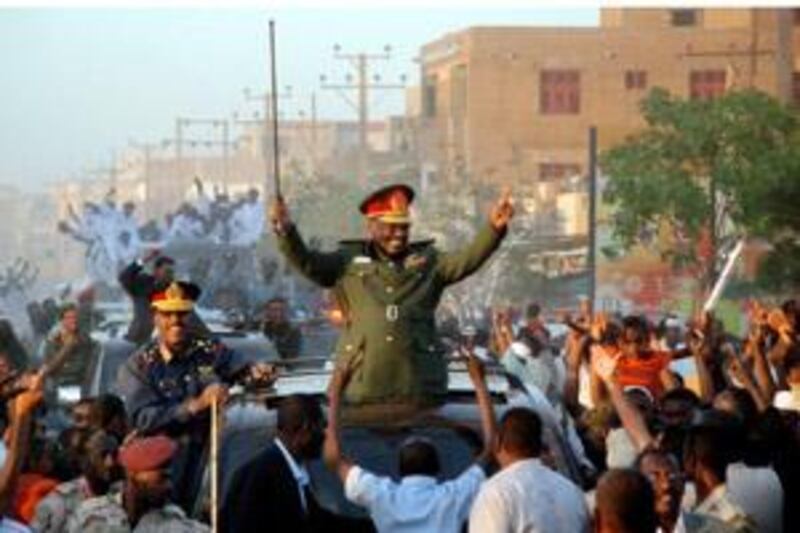NAIROBI // The International Criminal Court yesterday issued an arrest warrant for Omar al Bashir, the president of Sudan, for his alleged role in the six-year conflict in Darfur. It was the court's first indictment of a sitting head of state and could redraw notions of sovereignty and immunity for world leaders. Sudan, which is not a member of the ICC, dismissed the decision and refused to co-operate with the court. The Arab League and the African Union said the indictment could jeopardise the fragile peace process in Sudan's western Darfur region. A three-judge panel at The Hague-based ICC indicted Mr Bashir on five counts of crimes against humanity and two counts of war crimes. The judges stopped short of charging Mr Bashir with genocide, saying the prosecutor did not present enough evidence to warrant the charge. Mr Bashir "is suspected of being criminally responsible ? for intentionally directing attacks against an important part of the civilian population of Darfur, Sudan, murdering, exterminating, raping, torturing and forcibly transferring large numbers of civilians, and pillaging their property", a court spokeswoman, Laurence Blairon, told a press conference in The Hague. The Darfur conflict began in 2003 when African tribes, complaining of neglect, took up arms against the Arab-led government. The government and its allied Janjaweed militias cracked down on the rebels. They killed 300,000 people and displaced 2.5 million, the United Nations has alleged. Khartoum says 10,000 have died in the fighting. Human rights organisations said the decision to arrest Mr Bashir shows world leaders are not above the law. "With this arrest warrant, the International Criminal Court has made Omar al Bashir a wanted man," said Richard Dicker, director of the international justice programme at Human Rights Watch. "Not even presidents are guaranteed a free pass for horrific crimes." Amnesty International, based in London, called for Sudan to hand Mr Bashir over to the court. "The law is clear. President al Bashir must appear before the ICC to defend himself. If he refuses to do so, the Sudanese authorities must ensure that he is arrested and surrendered immediately to the ICC," said Irene Khan, Amnesty International's secretary general. "This announcement is an important signal, both for Darfur and the rest of the world, that suspected human rights violators will face trial, no matter how powerful they are." However, China has urged the UN security council to suspend the ICC's arrest warrant. China is a close partner of Sudan and a permanent security council member, so will play an important role in shaping how Bashir's prosecution unfolds. The security council has the power to suspend ICC actions. China's foreign ministry spokesman Qin Gang said in a statement: "We hope that the Security Council will respect and heed the calls from the African Union, Arab League and non-aligned movement, adopt the necessary actions ... and request that the International Criminal Court suspend trying this case." Sudan will almost certainly not arrest Mr Bashir. The government has refused to hand over two other wanted war crimes suspects, a government minister and a Janjaweed militia leader, to the ICC. It is unclear if the indictment will restrict Mr Bashir's overseas travel or if other countries will try to arrest him if he travels abroad. The leader of the Justice and Equality Movement, a main Darfuri rebel group, said his forces would try to arrest Mr Bashir. Agence France-Presse yesterday reported that Mr Bashir would attend an Arab League summit in Doha this month. If arrested, Mr Bashir would be the first sitting head of state to stand trial for war crimes. Slobodan Milosevic, the former Yugoslavian president, was arrested on war crimes charges after he stepped down in 2000. He died during his trial at the Yugoslav war crimes tribunal in The Hague. Charles Taylor, the former president of Liberia, was also arrested after leaving office. He is facing war crimes charges at the special court for Sierra Leone. The ICC was established in 2002 as the world's first permanent war crimes tribunal to replace the need for ad hoc courts. mbrown@thenational.ae
ICC issues arrest warrant for Bashir
The International Criminal Court issues an arrest warrant for Omar al Bashir for his role in the six-year conflict in Darfur.

Editor's picks
More from the national




